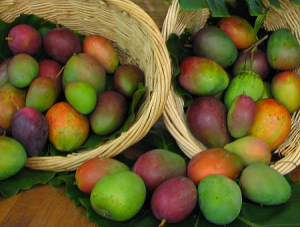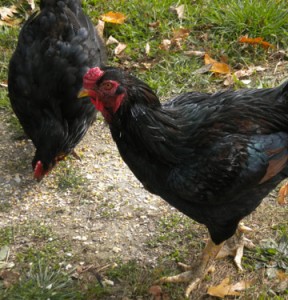Ebó is a ritual offering or sacrifice as dictated by divination. Ebó is one of the cornerstones of the Santeria religion, and it is the tool that we have been given by the Orishas to change our fate and return our lives to a balanced and healthy state.
Ebo takes many forms. It can be an offering of fresh fruits, ritual baths, offerings of cooked foods, undergoing initiation, receiving an orisha, or animal sacrifice to name a few. In every case, ebó is marked through divination (either through obí divination, diloggun divination or Ifá divination) as the required remedy to bring a person out of an unbalanced place and put them back into a state of balance. A properly recommended ebo can create miraculous change in a person’s life, and it can literally turn their life course in a new direction.
Addimu (Cooked Offerings)
Addimús are cooked foods that are token offerings of love and thanks to the orishas or to the ancestors. These are typically foods that the Lucumi (Lukumi) people ate in their diet. There are a slew of addimús that a diviner can mark for a person to offer, but each orisha typically likes a certain set of foods. While Chango might like amalá ilá (cooked cornmeal and okra), Oyá might like a nice chocolate pudding. Traditional addimus include black eyed pea fritters, corn tamales, balls of toasted wheat flour and condensed milk, boiled ñame root, or ochinchín (an egg scramble made with shrimp and greens). Addimús must be marked in divination and then placed beside the orisha with a prayer of offering and thanks. At the Santeria Church of the Orishas we prepare addimus for clients and place them on our orisha shrines. This is a simple service that is done in conjunction with diloggun divination in our church.
Isoguí (Fruit offerings)
Another form of ebó is to offer the orishas their favorite fresh fruits. Typically these are best if all picked from the same tree – or (the modern day equivalent) purchased in the same store. Each orisha has fruits that are their favorite. Isoguí should be marked through divination as with all other ebbos, but they can be given as a token of the heart as well. Fruits are always a safe bet when making offerings to the orishas. If you visit our church and want to bring an offering for the orishas, fruits are probably the best choice but ask one of our pastors before deciding what to bring.
Eyebale (Blood sacrifice)
Occasionally a major ebó will require blood sacrifice. This is one of the more controversial parts of the Santeria faith, but we want to demystify the practice for those who may not understand its function. Within Santeria blood sacrifice is only done with the kinds of animals you’d find on a farm: chickens, roosters, goats, sheep, pigeons, etc. It is a required part of any initiation (Elekes, Warriors, Orisha Addimú, Kariocha) and without blood sacrifice you do not have the presence of the orishas in that ritual, and you do not have a legitimate consecration. This is an ancient and traditional practice upheld by the culture bearers of our religion and is not something that can be excluded in said rituals.
Animal sacrifice is something that should be done with great respect to the animal, making sure they are given plenty of food and water as well as room to move about while in holding prior to the ritual. The sacrifice method commonly used in Santeria involves the severing of the carotid arteries with a knife to cause the animal to pass out before it dies. This is one of the most humane ways of killing an animal and is nearly identical to the way animals are handled with Kosher and Halal religious slaughter techniques. Most often the animals for major initiations are then butchered and the meat is cooked and shared with the community. The orishas or ancestors eat the blood, and the people eat the meat. It is an act of communion with the spirits.
This serious ebó is done when it is absolutely necessary. At the Santeria Church of the Orishas, we try to find simpler solutions like addimus before resorting to eyebale. Eyebale (Animal Sacrifice) is a legally protected form of religious practice according to the decision by the Supreme Court of the United States in the 1993 case of The Church of Lukumi Babalu Aye vs. the City of Hialeah. Our church action committee, SAFE – Santeros Against Fraud and Exploitation, takes a strong stance on the ethical treatment of animals prior to sacrifice and adherence to proper ritual slaughter of animals.



 Pagan Blog Project
Pagan Blog Project
Follow Us!